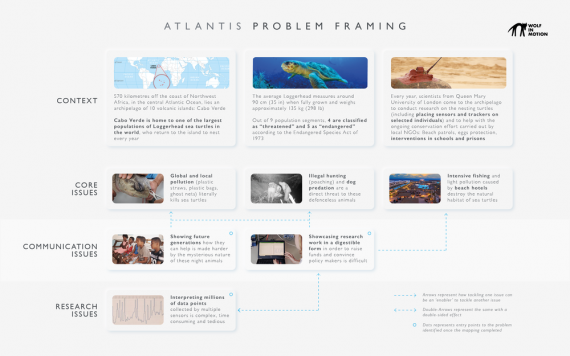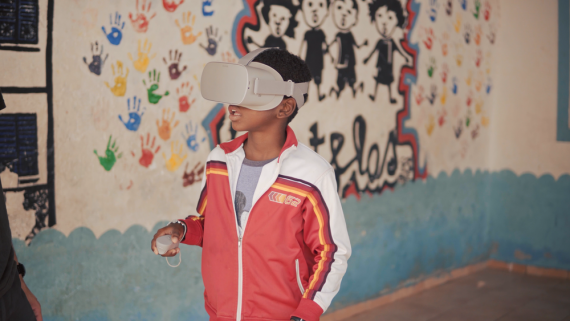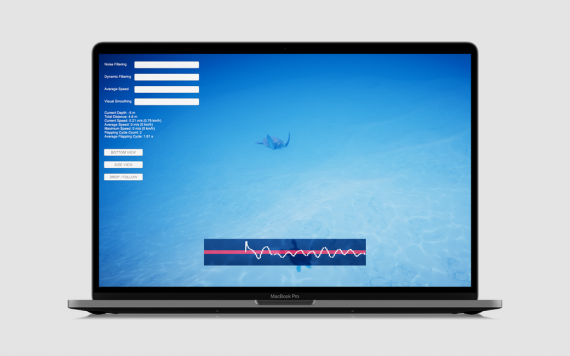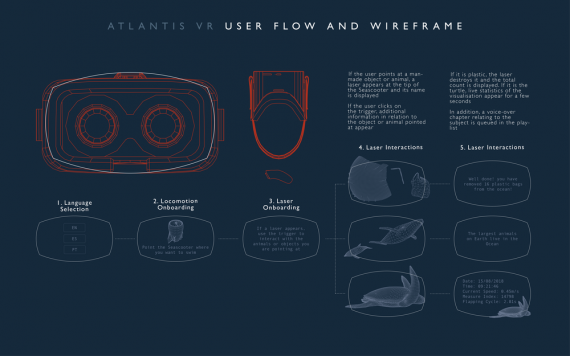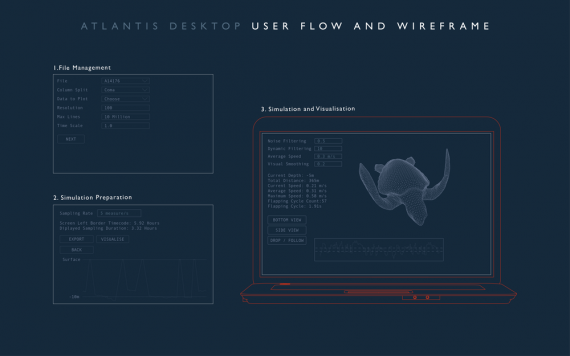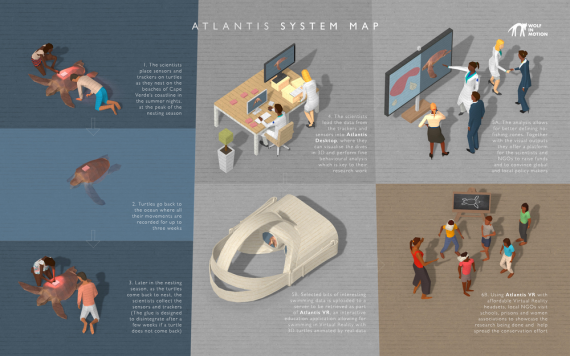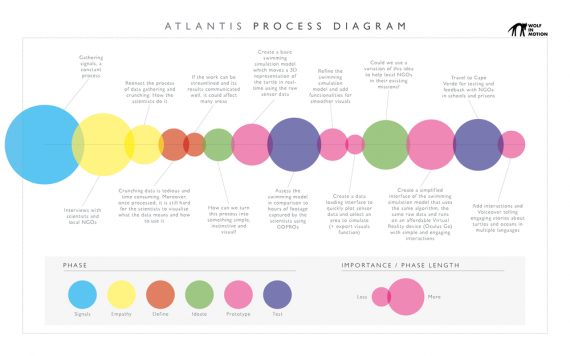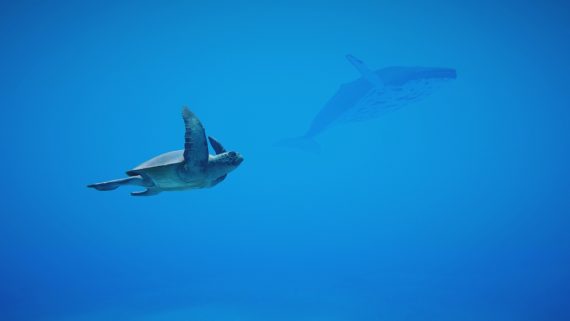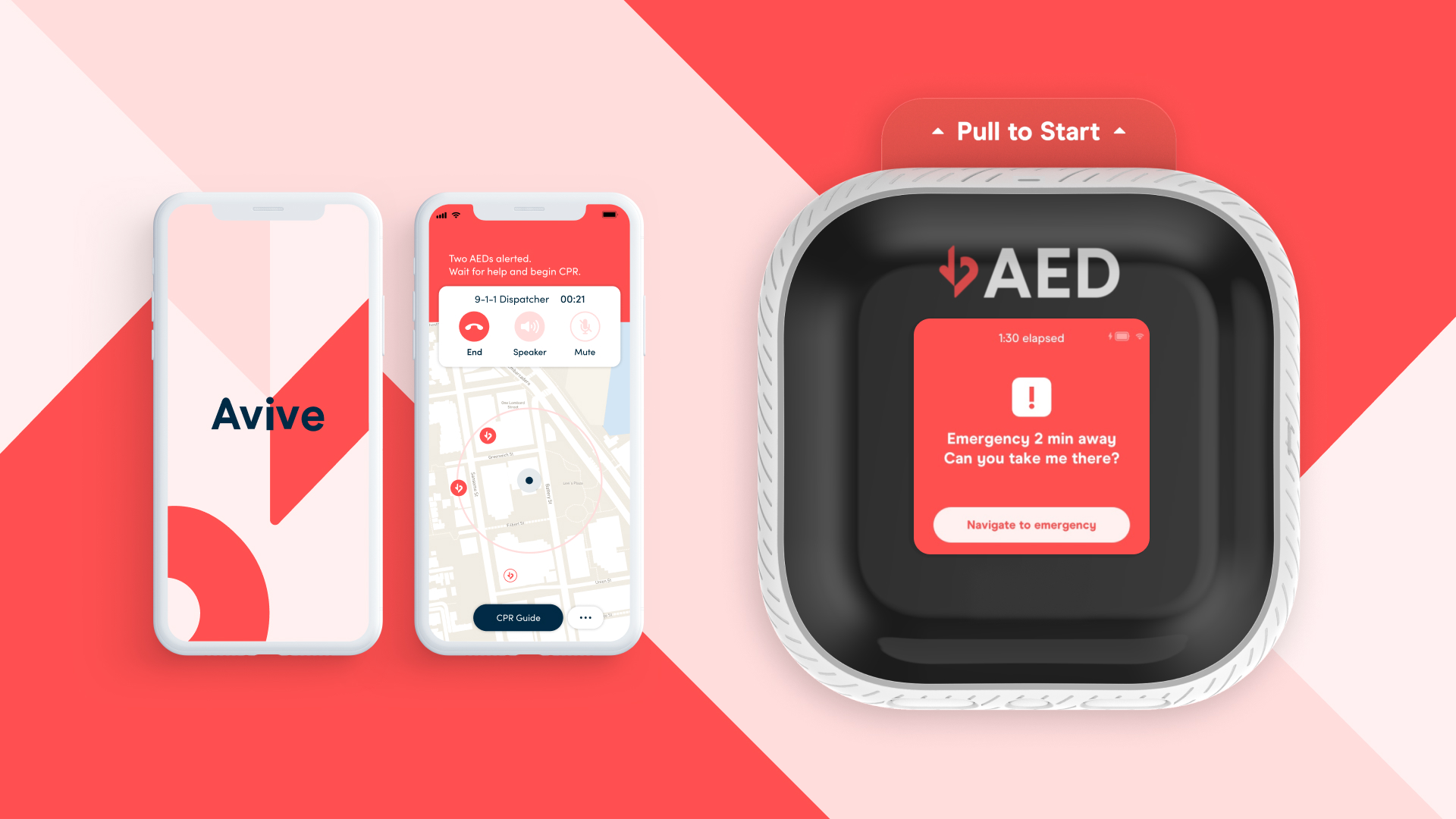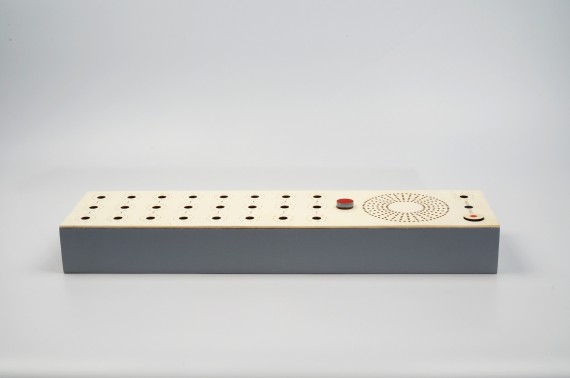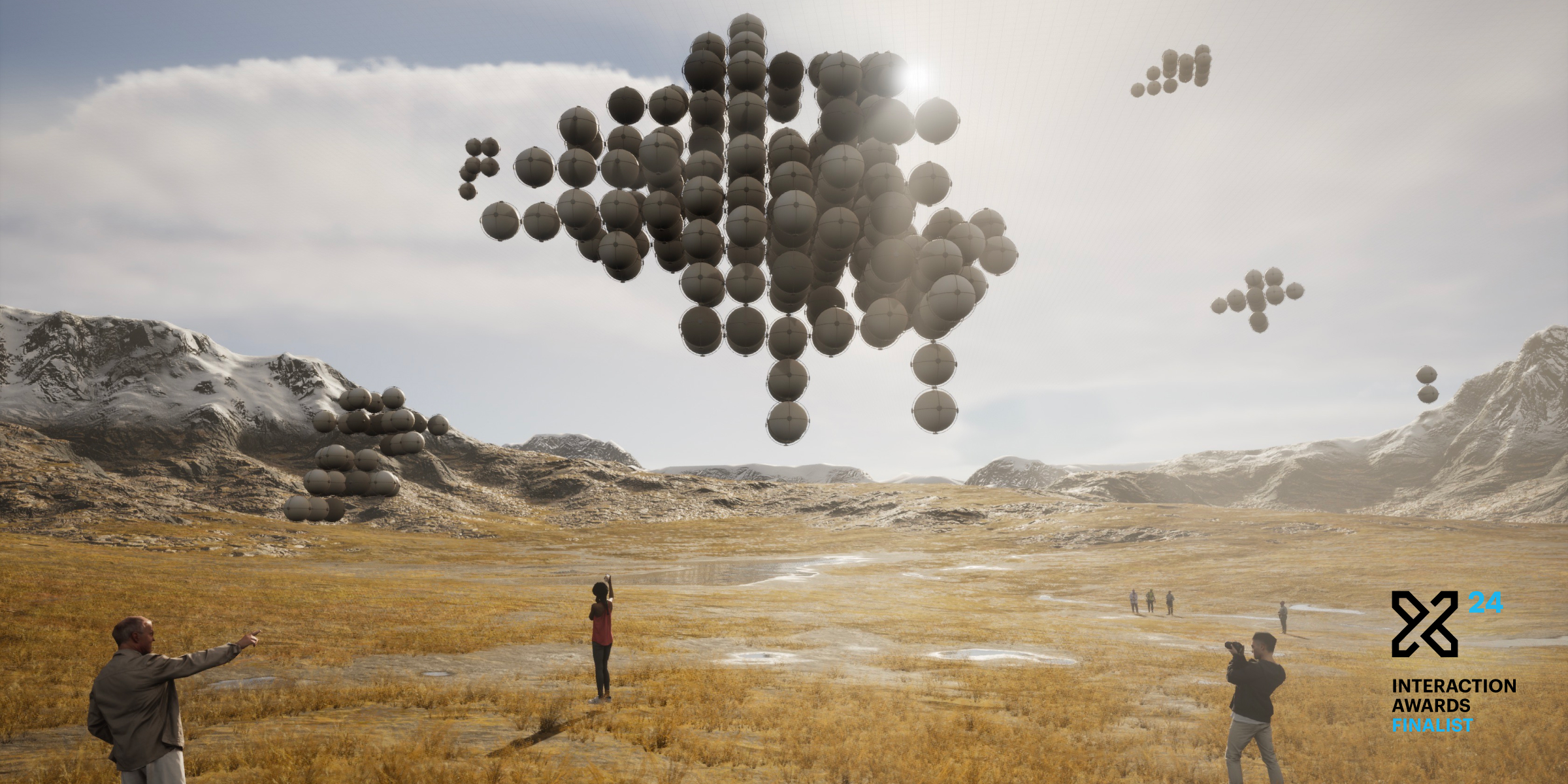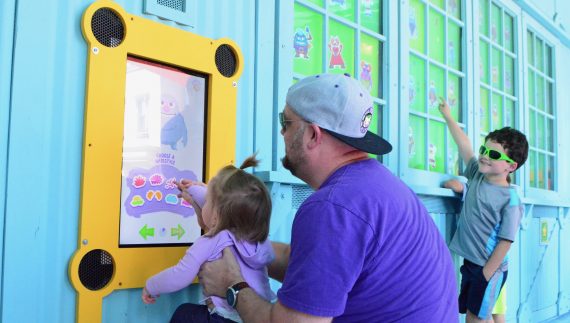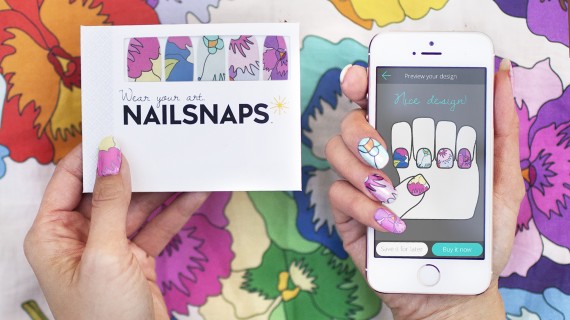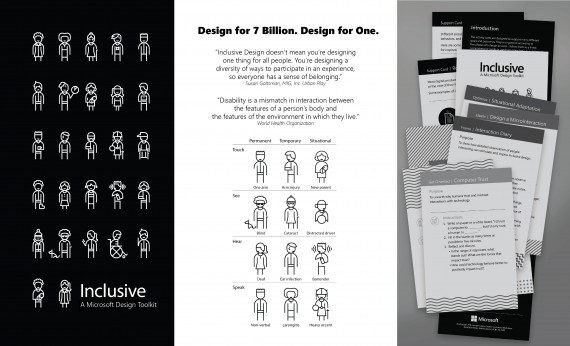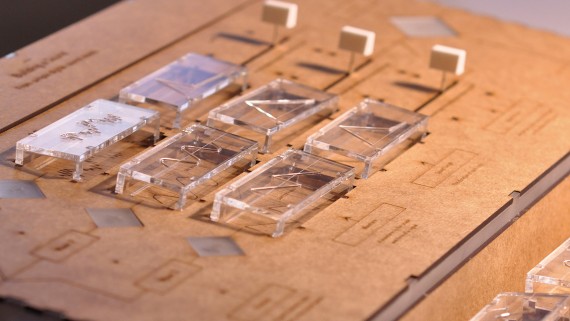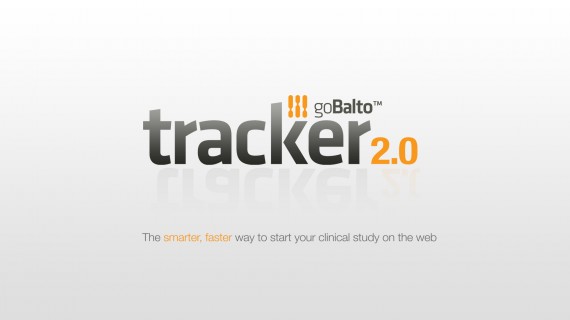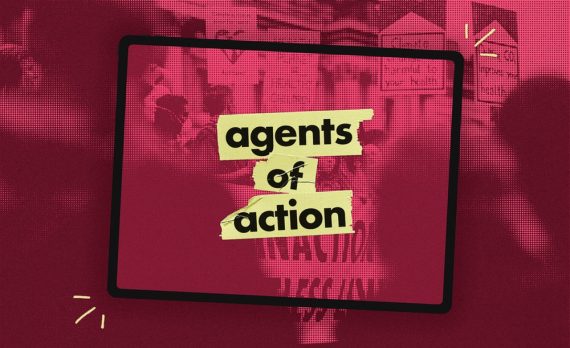Atlantis - A Sea Turtle Simulator
Team
Company | Institution
Category
Type
Project description
Every summer, a team of scientists from Queen Mary University travels to Cape Verde where they deploy sensors and trackers on nesting loggerhead turtles, to track them and understand their complex and mysterious behavioral patterns as they return to the ocean. The scientists came to Wolf In Motion to help make the complex data gained from the turtles more usable and understandable.
Atlantis followed a signals-empathise-define-ideate-prototype-test process:
Signals – for the past five years the Wolf In Motion studio has been researching the potential of using Unity, a software traditionally used for developing games, as a tool for design.
Empathise – we were designing primarily for the researchers who collected information on loggerhead turtles, and inadvertently designing to help conserve the turtles themselves. We spent 3 weeks collaborating with the scientists to understand their methodologies and needs:
- Accelerometers and depth sensors collected large arrays of points on the turtles, 7 data points a second, which were tedious to interpret using existing data analysis tools.
- It was difficult to compare different data quickly
- The researchers did not have an effective method of using the data publicly, either for changing public opinion or for increasing research interest at conferences.
Define – we saw that the problem the researchers had was in visualising the data in a useful way. The standard methods of charting over time spread the different types of data (6 axis acceleration + pressure) apart, abstracting the information.
Ideate – By creating a 3D model of the turtle in Unity which would react to the chart’s data, it would bring all the information back together again. The ideation involved deciding how much resolution the simulation should have, and what would the benefits be of more or less.
Prototype – A simulator used by scientists to visualise turtle swims and allowing for complex behaviour analysis, and a VR educational application used by a partnering NGO (Project Biodiversity) to raise awareness in Cape Verde on the effects of poaching and plastic pollution
Test & Impact – The simulator has been used since the first beta release in August 2018. Since the researchers at Queen Mary are now able to interpret the data at scale, Atlantis allows scientists to understand loggerhead turtles behaviour and define no-fishing zones more accurately. A secondary benefit for the researchers was that visuals from the virtual turtle program were better for showcasing the research, whether to educate or to convince decision makers in charge of research fund allocation and policy makers who constantly arbitrate between the tourism economy and wildlife protection.
Since June 2019, a VR version is being used in Cape Verdian schools and prisons to help raise awareness around the plastic pollution issue and its effect on loggerhead turtles, as well as the need to stop the practise of turtle poaching.
Atlantis followed a signals-empathise-define-ideate-prototype-test process:
Signals – for the past five years the Wolf In Motion studio has been researching the potential of using Unity, a software traditionally used for developing games, as a tool for design.
Empathise – we were designing primarily for the researchers who collected information on loggerhead turtles, and inadvertently designing to help conserve the turtles themselves. We spent 3 weeks collaborating with the scientists to understand their methodologies and needs:
- Accelerometers and depth sensors collected large arrays of points on the turtles, 7 data points a second, which were tedious to interpret using existing data analysis tools.
- It was difficult to compare different data quickly
- The researchers did not have an effective method of using the data publicly, either for changing public opinion or for increasing research interest at conferences.
Define – we saw that the problem the researchers had was in visualising the data in a useful way. The standard methods of charting over time spread the different types of data (6 axis acceleration + pressure) apart, abstracting the information.
Ideate – By creating a 3D model of the turtle in Unity which would react to the chart’s data, it would bring all the information back together again. The ideation involved deciding how much resolution the simulation should have, and what would the benefits be of more or less.
Prototype – A simulator used by scientists to visualise turtle swims and allowing for complex behaviour analysis, and a VR educational application used by a partnering NGO (Project Biodiversity) to raise awareness in Cape Verde on the effects of poaching and plastic pollution
Test & Impact – The simulator has been used since the first beta release in August 2018. Since the researchers at Queen Mary are now able to interpret the data at scale, Atlantis allows scientists to understand loggerhead turtles behaviour and define no-fishing zones more accurately. A secondary benefit for the researchers was that visuals from the virtual turtle program were better for showcasing the research, whether to educate or to convince decision makers in charge of research fund allocation and policy makers who constantly arbitrate between the tourism economy and wildlife protection.
Since June 2019, a VR version is being used in Cape Verdian schools and prisons to help raise awareness around the plastic pollution issue and its effect on loggerhead turtles, as well as the need to stop the practise of turtle poaching.

